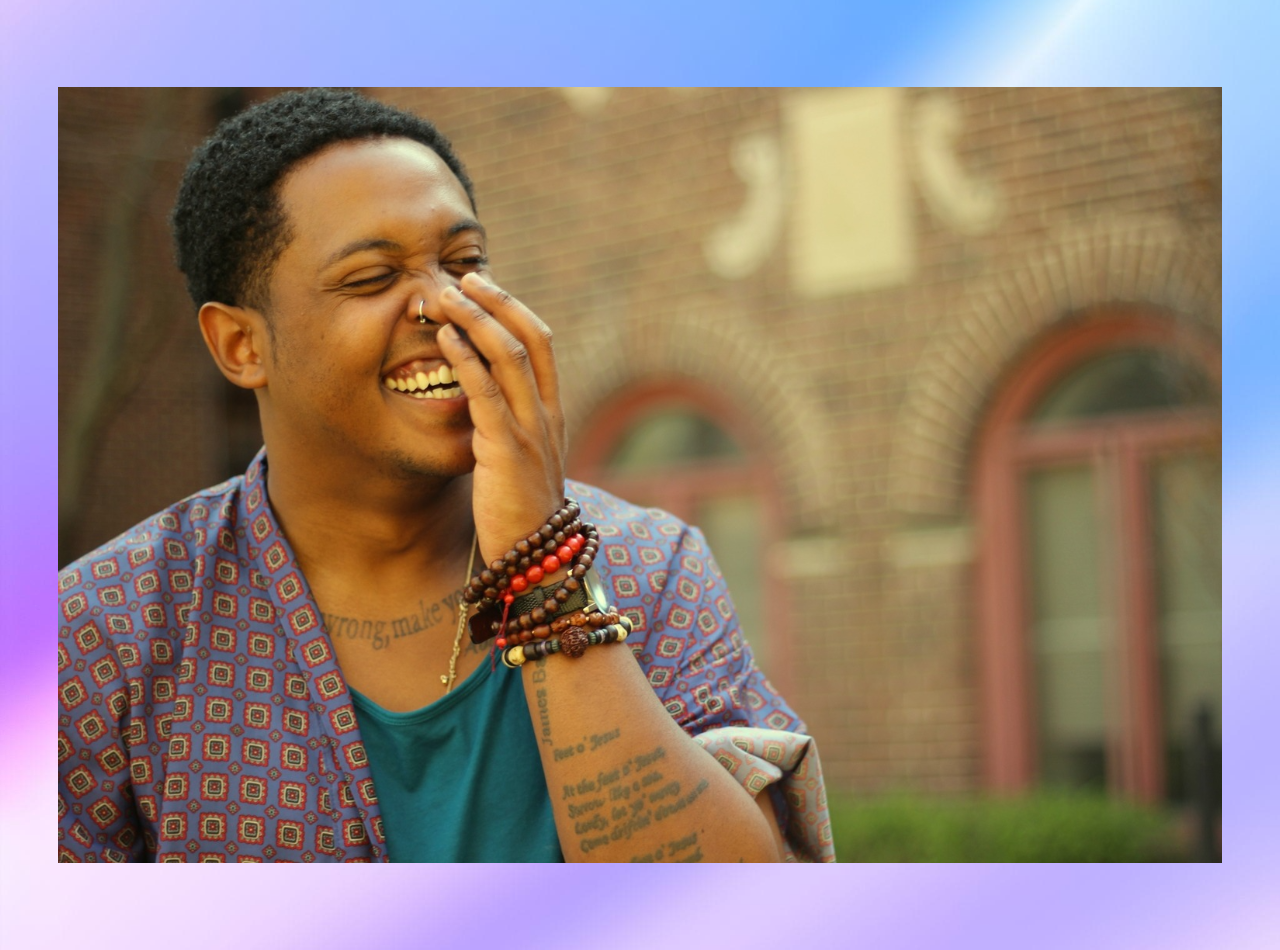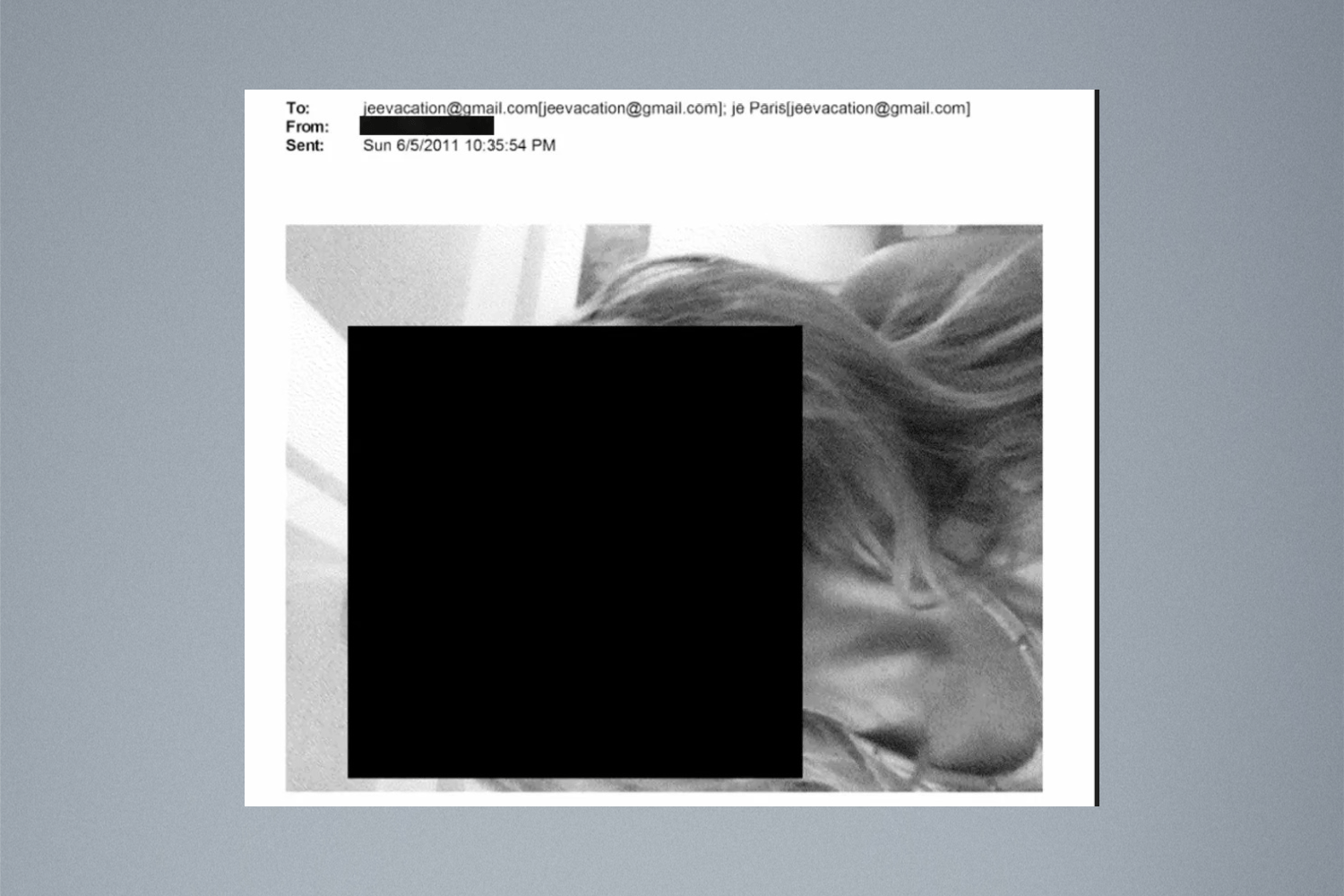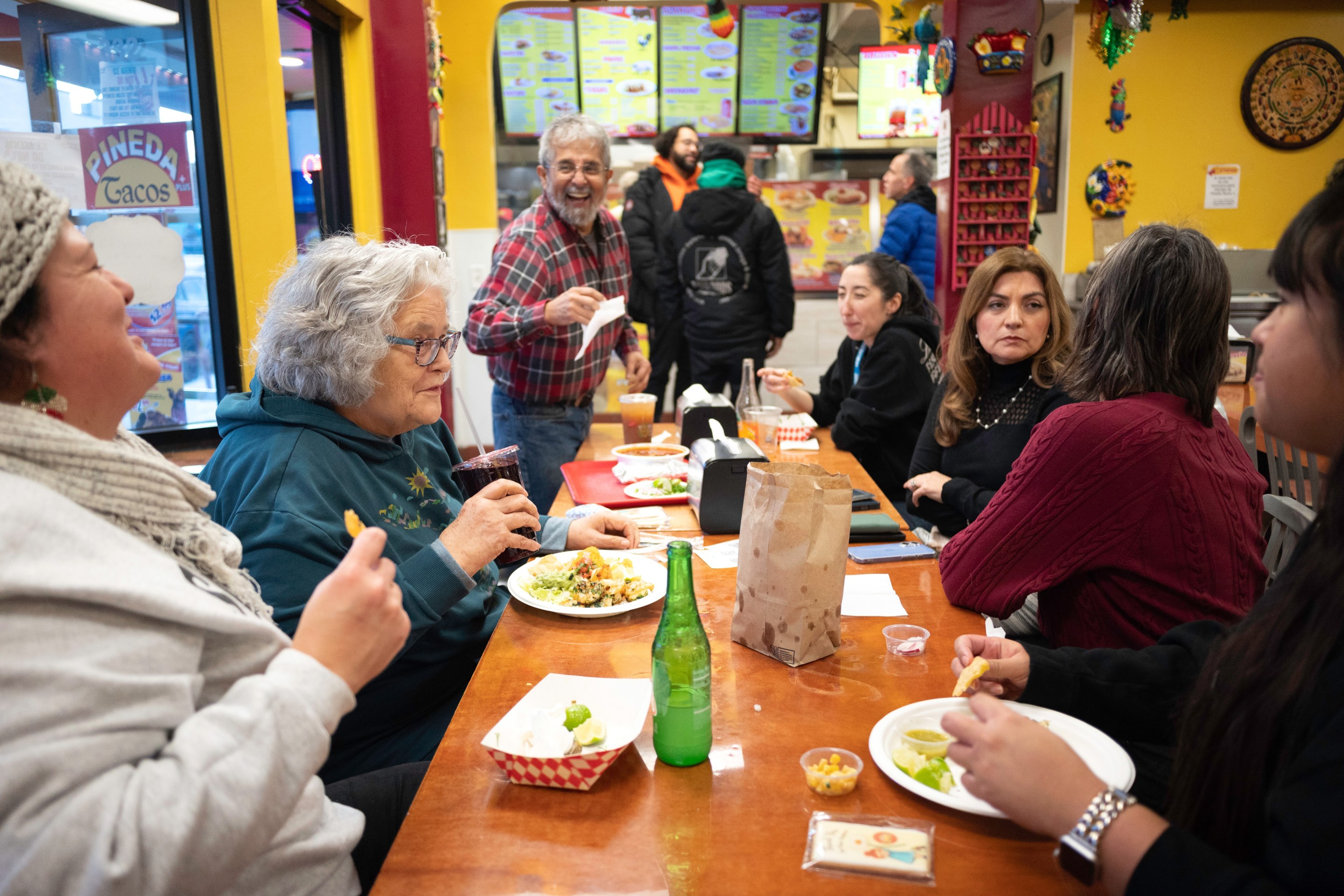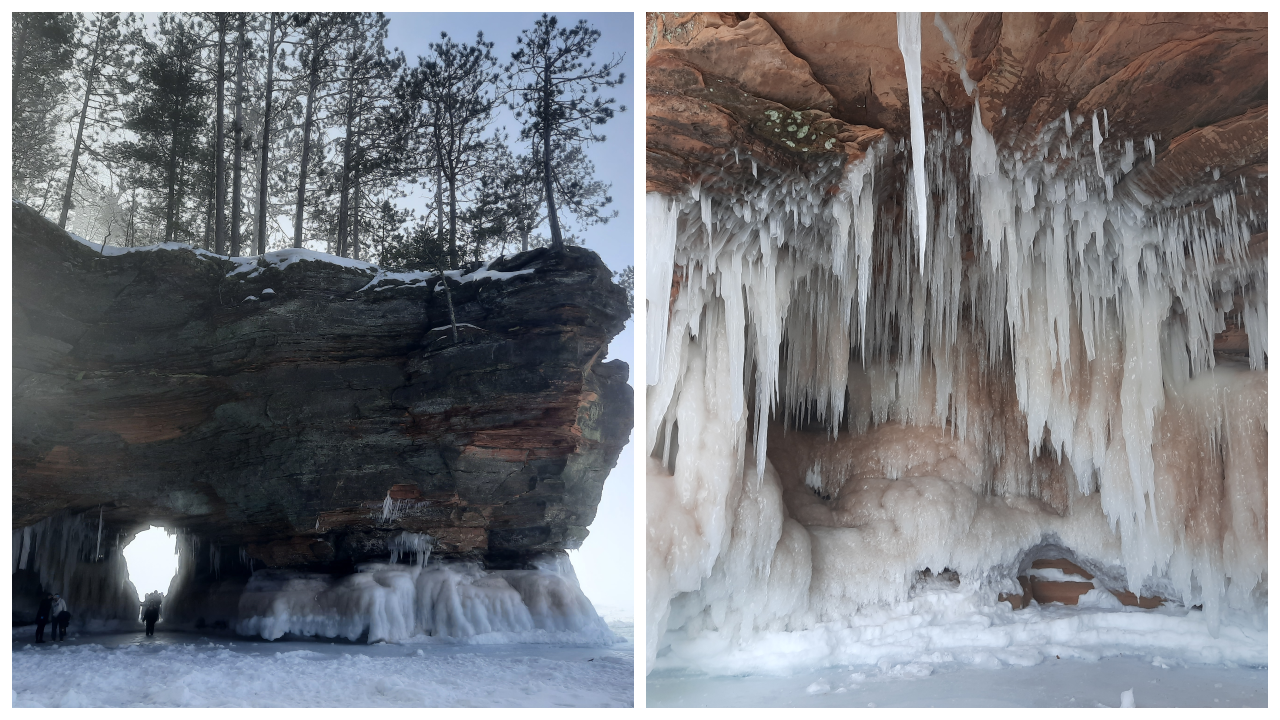Award-winning poet Danez Smith’s latest book, August's Bluff (Graywolf Press, 160 pages), is a Twin Cities-centric collection filled with lyric language, heavy thoughts, and humor about the most pressing issues of our time. Over Zoom on the last day of Minnesota’s warmest, driest September on record, Racket spoke with Smith about climate change, poetic inspiration, northbound I-35W, and the artistic merits of Microsoft Word.
Since we're both Minnesotans, we'd be remiss if we didn't start out talking about the weather. Today’s heat makes me think of your climate change writing, specifically “elegy in green & blue” and the essay “My Beautiful End of the World." How are you feeling about the weather?
I think there's two ways, right? There is the surface level human delight in summer lasting a little bit longer, and that feels good on the skin. But that's an insulated opinion, being further away from the effects of climate disaster. It's warm and nice here. The Minnesotan in me that hates winter is a little happier. But the Minnesotan in me that knows that we need winter is frightened by this heat. We're looking at the floods that have happened along the East Coast and in North Carolina. Verizon Wireless is down today and part of why that's super frustrating for me right now is I can't call my family in Atlanta, who are dealing with the chemical fire after their water supply has already been contaminated.
Climate disaster is alive and well. I think about who is insulated from that disaster. A friend was recently saying we should all buy some land in California together. I was like, “Girl, maybe Minnesota, because what are the next 10 to 20 years going to look like?” We're going to worry about tornadoes, we're going to worry about a vanishing winter. But we'll have access to fresh water. So yeah, two ways: the everyday, casual, the temporary in me, the ephemeral can be happy about the heat. But the part of me that is in community with the rest of the world, with nature, and with other humans, is always a little bit anxious and daunted by these days.
I admire your poetry and poetry, in general, for a lot of reasons. One of which is that I do not have the emotional depth that is required to write poetry. I imagine that poets have an elaborate, mystical, soul centering process in order to delve into their emotional interior. Tea crystals, incense. How about you: Do you have a favorite writing routine? Do you like pen and paper? Do you type? Voice to text?
I don't really have a hard process. I'll say, rather, that it's changing. What maybe works for one book or for one period of time might not satisfy now. There were times when I had a more traditional nine-to-five job and I wrote a lot on the train, to and from work, when I was living in the Bay Area. There have been times in my life where I was traveling a crap-ton and I found myself really inspired in the airport and on planes.
Currently, the two things that maybe trigger writing for me are time and physical activity. I do better when I'm in routine. For the last month or two, I've been trying to wake up early, 7 a.m., hop on to my computer and that's me trying to write a novel. Or maybe I'm working on a poem that I started the night before. And the other thing is when I'm doing something active, like when I'm at the gym, I feel like I'm writing between sets. Or if I'm taking a walk, doing the dishes, something that allows my body to be active and my mind to wander a little bit. That brings a lot of inspiration for me lately.
So no crystals, not right now. There have been times in my life where I did that. Light the incense, light the candles, make the tea. But it's really about where it happens. I wrote a poem the other day standing up in my kitchen, typing on my computer while I was making pasta. It really comes whenever it comes. It's up to us to recognize those patterns so we can trick ourselves sometimes into inspiration. But sometimes language just shows up and sort of demands whatever is available. My main two modes are the notes app—something about those white letters on the black background that I really like—and pen and paper. I try to avoid the computer as much as possible until a later stage in the process.
One of your poems in Bluff is a QR code that leads to a little multimedia adventure, where you explain that a collage of Twin Cities area codes is too big to fit on the page. Compared to your previous collections Homie and Don’t Call Us Dead, Bluff contains more visual intrigue—concrete poems, photo poems. I have a very pedantic “which tools” question for you. How are you creating those word pictures? Do you use Photoshop?
I'm just using Microsoft Word.
Just Microsoft Word?
Yeah, just Microsoft Word. Trying to manipulate that as much as possible. The collage: That's just me putting blocks of white boxes over the same thing, trying to manipulate it. I should learn Photoshop or InDesign at some point, but I have not gotten around to it yet. So Word it is.
Some of your poems have very perfunctory place name titles, like “I-35W North Downtown Exits,” that remind me a lot of James Wright's work, another Minnesota poet. You take something that's kind of pedestrian, you observe it, and then, to me, the reader, all of a sudden, you're landing the poem in this really devastating, emotional place. And you've turned an interstate exit into a genius observation of the human condition. How do you do that?
Some of those titles are me, just maybe quoting a point of inspiration. The poet has many jobs, but one of them is just to keep your eyes open, in the literal and the figurative—not all poets can see—but to attend to your own witnessing and be open to things as they come to you. That title is one of my favorite views of the city. I love driving north on 35 and getting to see the southern face of downtown. I take that ride at least two to three times a week. And, one day, a poem hits. You're looking at something you look at all the time and you think, my God. I was thinking so intensely about Minneapolis, both my love for it and my critiques for it.
Sometimes the poet looks at a tree and a five-page poem happens, right? You see the deer in a cemetery. You think about them for years, and now you finally have a bit of language with which to attend to them. Some of those titles are really just to say: This is where the thought started to germinate, to pay homage to inspiration. Let me show where I was when this thing first started bouncing around in my head.
The deer poem reminded me of the James Wright poem about stopping to see the horses.
I do like James Wright. But I was not influenced by that one. I try to announce when I'm thinking about another poet’s poem. Another one of the freeway poems, “Approaching a Sestina on I-94 West” is after Jane Huffman. Without her “Failed Sestina,” that poem would not have happened.
The deer actually just comes from looking at two deer that I always see in the cemetery on Lake Street. I've thought about them for years, and I've always wanted to write them a poem or a ghost story or something. Sometimes poems happen in 15 to 20 minutes, in one sitting. Sometimes they take years to wrestle down and write. There are several poems in the book where I've known for years that I wanted to do something, but I didn't have the right entry point. I just didn't have that first sentence. Sometimes you’ve got to be patient and eventually a phrase shows up, or a word, or the proper image. Then the rest is improvisation. I am often just waiting on language’s invitation into a thought.
You cite the influence of some other poets besides Jane Huffman, like Angel Nafis, Jonah Nixon-Webster, and Jamila Woods. They all look like they're producing very vibrant new work. Where do all the cool young poets hang out? Do you meet up at conferences? Do you guys have a secret Discord channel?
I couldn't tell you if that exists now, could I? Those three poets, in particular, are folks I’ve known and loved for years. They're contemporaries, but they're also friends and family. Jane is the one I know the least. I do really love her work. She's phenomenal. But Angel, I've known since I was 15 or 14. We met at Brave New Voices, the International Youth Poetry Slam, so I've known Angel as long as I've been a poet. I have her words tattooed on my back.
Jonah's a great poet that I met on the dance floor. We became dance buddies. We made kissy faces at each other for a little bit and now we're just friends in a beautiful way. I could talk about anything with him. If I get a phone call from Jonah, I know I'm going to be busy for four hours.
Jamila is one of my favorite songwriters and singers. She's also a very dear friend. We've been in the Dark Noise Collective together for 11 years now.
I think it's important to name your team. I get so much inspiration from community. It's not always the ancestors, but they're there, too. There’s Audre Lorde in this book, June Jordan, Lucille Clifton, and Amiri Baraka, but there's also Franny Choi, who's one of my best friends. Right. I want to tell readers, “Hey, these are people whose work you should check out.” To see the great mana that is waiting in there for them. I love when other poets do that, too. I love seeing the map of inspiration.
I read in your BOMB interview with Alexander Chee that you didn't write for two years after you published Homie. Did you not write at all?
I didn't write in ways that I found useful. I tried to write poems, but they just weren't good. I often didn't feel called to the page in the same way. Actually, the two essays from the book came in that process. It was maybe the final chapter of me remitting my relationship to prose. There was a years-long process to say “yes” to doing essays.
“Minneapolis, Saint Paul” started off as prose that I wrote for The New Yorker in the midst of the uprisings and also takes a little bit from a GQ essay that I wrote that same summer. “My Beautiful End of the World” was commissioned for Atmos Magazine. Maybe because it was just enough outside of poetry that that was the reason I could enter them. My relationship with poetry was troubled. And so it did feel easier to write the essays. It was also kind of for money too, a little bit, some of them. The “Minneapolis, Saint Paul” essay, I almost told them “no,” but my partner at the time said, “This is your skill. You need to offer your words. There's very few people who are here and can write like you. This is part of your job of this time, is to catalog it.” Even though we broke up and they think I'm the devil, I thank them for that encouragement.
I didn't really start writing poetry again until 2022. I spent a lot of 2021 trying to rehab my relationship with poetry. Just really low-stakes writing. I was writing haibun, a Japanese form that combines a prose poem with a haiku. Very little of that language made its way into Bluff. By the end of 2021, that's when I started writing poems that had goals and missions and vision again.
What's next for you? You mentioned a novel.
Yeah, I'm writing a novel. In the past, when people were like, “You should write a novel,” I was just like, “It’s really not that easy, and also they're quite long. It's 300 pages, bro.” But, finally, I had an idea that feels like a novel. It's loosely based on my growing up and my relationship with my father who lives in Atlanta. Loosely. The seed of it is true, but what blooms from it is fiction. So I'm really excited to be writing that. I get to make these little characters move around, and I think it's very fun to have no idea what I’m doing.
I started doing stand-up, which has been really fun. I have my first stand up feature Tuesday, October 1, at 8:30 p.m. at Stand-Up Saloon. I'm going to tell my little jokey jokes. And that's been fun. It's scary as hell, but I've been trying to do things that scare me. I think I was a lot freer and more fearless as an artist when I was younger. As my poetry career took off, I focused on poetry and I think I'm rather fearless in the poem. But I sort of shut down these other parts of myself that were more curious and much more unbound by genre.
I also have a play. I’m giving a staged reading at Pillsbury House Theatre. We're looking at February for that happening. There's still poems happening. I looked up the other day and I was like, oh, shit, I think I have half a poetry collection again. It's actually a very creative time in my spirit.







